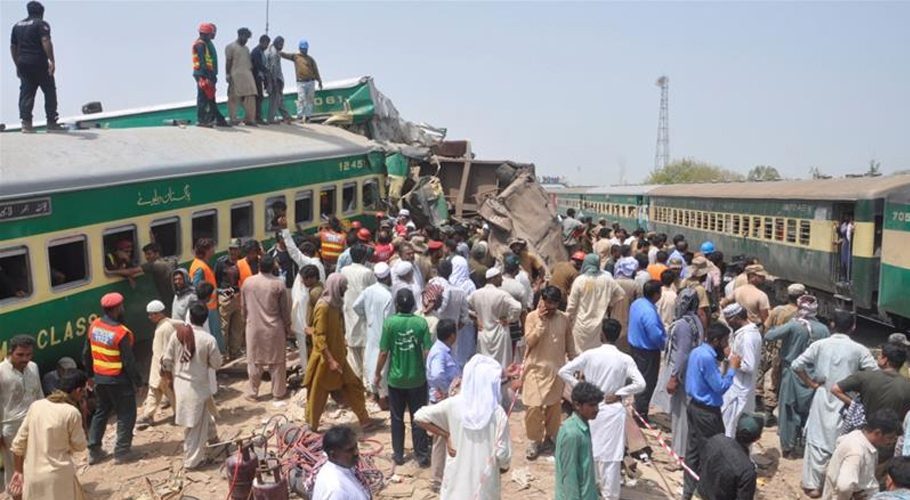Pakistan Railways has for long held the dubious reputation of being unsafe, and obsolete in terms of infrastructure. In the last few years alone, hundreds of passengers have lost their lives.
On Monday, with more than 40 people losing their lives in yet another train incident in Ghotki, it emerged that Railway officials have previously issued reports declaring the track unsafe.
Track declared unsafe
Recently, a report by the Deputy Superintendent (DS) of Railways Sukkur to CEO Railways highlighted the dangers posed to the trains from the Sukkur track.
DS in the report said that the 456-kilometer track on the mainline in the Sukkur division was in a dilapidated condition besides also highlighting issues with the 532-kilometer of the branch line track in the division.
Blame game
Furthermore, another report has emerged which blamed the DS Railways Sukkur for train accidents in the area while terming him mentally unfit to run the affairs.
The report was prepared by the federal inspector for Railway Farrukh Taimoor months back over the conduct of DS Tariq Latif after Karachi Express encountered an accident at Mando Dero.
The inspector cautioned the railway ministry against the DS and reported that more incidents could happen in his presence. He blamed the deputy superintendent for being mentally unfit while recommending his medical treatment besides also claiming that he forces drivers to speed up the trains on the track.
Irregularities in the appointment
Moreover, he highlighted that the appointment of a grade-19 official on the post was also against the regulations. The sources privy to the matter said that the senior general manager Nisar Memon has also repeatedly asked the railways minister to transfer the official.
Ghotki train accident
More than 40 passengers were killed and several others were injured when two express trains collided near Ghotki on Monday morning, police and rescue officials said.
Sindh government spokesperson Murtaza Wahab has confirmed that almost 40 passengers were killed. The Millat Express – headed from Karachi to Sargodha – derailed and the Sir Syed Express train hit it soon afterward between Raiti and Daharki railway stations in district Ghotki. Around 14 boogies of both trains have been damaged while four have been completely destroyed.
Latest accidents
In October 2019 a fire caused by a gas cylinder killed more than 70 passengers on a train traveling from Karachi to Rawalpindi, and another 20 people were killed in a train crash a few months earlier, in July 2019. Data from Pakistan Railways shows there were 757 train accidents between 2012 and 2017 – an average of about 125 incidents a year.
Causes of the accidents
The railways are an essential mode of travel, especially among middle and lower-income groups, with tracks spanning the length and breadth of Pakistan.
Railway accidents are not uncommon in Pakistan, often caused by derailment and collisions at unmanned railway crossings. Carriages are often overcrowded and many of the trains are in poor condition. All the tracks of the mainline in Sukkur division have expired but it is not being replaced.
According to the authorities, the three major causes of train accidents in Pakistan are lack of track maintenance, signal issues and older engines.
Several governments have said that efforts to revamp the decades-old system are being made, but on-ground reality suggests the state-owned entity is at the brink of disaster at every turn. In the last few years alone, hundreds of passengers have lost their lives.
We have an increase in train accidents but due to the non-determination of those responsible, precious human lives have been lost. According to the railway officials, if the track was dangerous then why the train was allowed to travel on it?
Now it is the responsibility of Prime Minister Imran Khan to supervise the inquiry about the incident and identify those responsible for the accidents and severe punishment should be given to the responsibles so that such incidents can be prevented in the future.



































